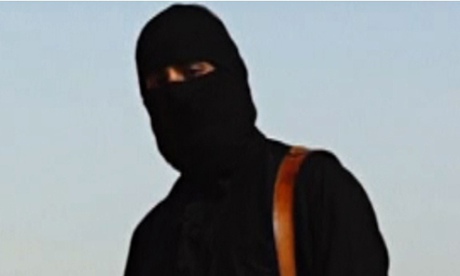
What is it with religion and violence? One man severs the head of another, and in the name of God… If this is real religion, then count me an atheist. But this is real religion, I hear you say. The history of religious belief is a history of horrendous violence: intolerance of others, burnings and lynchings, religious wars in which millions have died, torture, persecution. It’s easy to see the appeal of John Lennon’s imagining no religion.
So why is it that religion often does not have enough moral fortitude to resist its own capacity for violence? At its heart, religion is that category of belief in which the world does not revolve around me but around something other than me. It is a sort of Copernican revolution in which the human being is not at the centre of all things. That is not its only characteristic, but it is essential.
But there are two ways in which this thought can go. It can be a source of humility, a reason to admit that there is much about the world that I do not and cannot know, a basis for a sense of wonder at that which is beyond me that cannot be collapsed into my own plans and schemes. But also, and in total contrast to this, having the belief that we are indexed (and have special access to) to something higher or beyond ourselves can itself serve to make us feel more powerful, more virtuous, more in touch with the truth – the very opposite of the Copernican revolution of the spirit. And being exclusively allied to the truth is always a useful way of excusing one’s own violence, for it is all being done in the name of something else, something other than me. For God, as it were.
I have always argued that there is a difference between good and bad religion. But I am aware, and worry, that the problem with this distinction is that good religion can serve to give bad religion a good name. This is the atheistic complaint against liberal believers: that they provide ideological camouflage for their more murderous brothers, and by so doing keep bad religion going. Against this, I still contend that the most effective way of getting rid of bad religion – and by that I principally mean violent religion – is by challenging it in its own terms, rather than insisting upon the eradication of religion per se.
Anyway, I don’t believe eradication is possible. The old modernist thesis that scientific progress would make us less and less religious has proved to be entirely unfounded. Religion exploded in the 20th century. Indeed, in numerical terms, Christianity (for instance) grew more in the 20th century than in any other century before it. And moreover, what would the eradication of religion mean if not the source of yet further opportunities for violence?
Earlier this week, Saudi Arabia’s top cleric, the grand mufti, Sheikh Abdulaziz Al al-Sheikh, said that Islamic State (Isis) and al-Qaida are “enemy number one of Islam”. Just hold those words in your head for a moment. That’s a big deal thing for him to say. The grand mufti in Saudi Arabia is not some soft liberal lefty cleric: Saudi Arabia is the spiritual home of Wahhabi Islam, a brand of Islam that takes inspiration from the 18th-century cleric Muhammad Ibn Abd al-Wahhab, often credited with being the ideological progenitor of Islamic fundamentalism. Yet Isis and al-Qaida have nothing whatsoever to do with Islam, says the grand mufti.
This sort of thing is nowhere near enough. But it is a start. If religious belief is to regain its place at the table of civilised humanity, it will have to model a great deal more humility about its own sins and failings.
Twitter: @giles_fraser












Comment from the paper
Steve Bell on RBS – cartoon
John Harris: It’s not just Scotland where politics as usual is finished
Gaby Hinsliff: Fat-shaming: how the slim and sanctimonious help to cause our obesity crisis